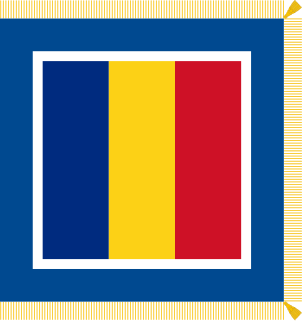
The President of Romania is the head of state of Romania. The President is directly elected by a two-round system for a five-year term. An individual may serve two terms. During his/her term in office, the President may not be a member of any political party.

The Hungarian Workers' Party is a communist party in Hungary led by Gyula Thürmer. Established after the fall of the communist Hungarian People's Republic, the party has yet to win a seat in the Hungarian parliament. Until May 2009 it was a member of the Party of the European Left.

The Australian referendum of 27 May 1967, called by the Holt Government, approved two amendments to the Australian constitution relating to Indigenous Australians. Technically it was a vote on the Constitution Alteration (Aboriginals) 1967, which became law on 10 August 1967 following the results of the referendum. The amendments were overwhelmingly endorsed, winning 90.77% of votes cast and carrying in all six states. These amendments altered sections 51(xxvi), and 127, having the immediate effect of including Aboriginal Australians in determinations of population, and also empowering the Federal Parliament to legislate specifically for this racial group. The other question put in the referendum, to allow the number of seats in the House of Representatives to be increased without increasing the number of senators, was rejected. It received majority support in only one state – New South Wales – and received about 40.25% "yes" votes nationwide.

Referendums in Australia are polls held in Australia to approve parliament-proposed changes to the Constitution of Australia or to the constitutions of states and territories. Polls conducted on non-constitutional issues are usually referred to as plebiscites.

The Australian republic referendum held on 6 November 1999 was a two-question referendum to amend the Constitution of Australia. The first question asked whether Australia should become a republic with a President appointed by Parliament following a bi-partisan appointment model which had been approved by a half-elected, half-appointed Constitutional Convention held in Canberra in February 1998. The second question, generally deemed to be far less important politically, asked whether Australia should alter the Constitution to insert a preamble. For some years opinion polls had suggested that a majority of the electorate favoured a republic. Nonetheless, the republic referendum was defeated due to division among republicans on the method proposed for selection of the president and dissident republicans subsequently supporting the no campaign.
The 1944 Australian Referendum was held on 19 August 1944. It contained one referendum question.
The 1988 Australian Referendum was held on 3 September, 1988. It contained four referendum questions, none of which passed. The failure was generally attributed to the open ended and nondescriptive wording of the proposed amendments.
Constitution Alteration 1910 was an Australian referendum held in the 1911 referendums which sought to alter the Australian Constitution to extend the Commonwealth power in respect of trade and commerce, the control of corporations, labour and employment and combinations and monopolies. All of the proposed changes were contained within the one question.
Constitution Alteration (Monopolies) 1910 was an Australian referendum held in the 1911 referendums which sought to alter the Australian Constitution to give the Commonwealth power to nationalise any corporation deemed by both houses of parliament to be a monopoly.
The Constitution Alteration 1912 was an Australian referendum held in the 1913 referendums which sought to alter the Australian Constitution to extend Commonwealth legislative power in respect to trade and commerce.
Constitution Alteration (Corporations) 1912 was an Australian referendum held in the 1913 referendums which sought to alter the Australian Constitution to extend the Commonwealth legislative power in respect to corporations.
Constitution Alteration (Trusts) 1912 was an Australian referendum held in the 1913 referendums which sought to alter the Australian Constitution to give the Commonwealth legislative power in respect to trusts.
Constitution Alteration 1912 was an Australian referendum held in the 1913 referendums which sought to alter the Australian Constitution to give the Commonwealth legislative power in respect to monopolies.
Constitution Alteration 1912 was an Australian referendum held in the 1913 referendums which sought to alter the Australian Constitution to give the Commonwealth legislative power over industrial relations in the State railway services. The question was put to a referendum in the Australian referendum, 1913.
Constitution Alteration (Marketing) 1936 was an Australian referendum held in the 1937 referendums which sought to alter the Australian Constitution to remove the restraints imposed on Parliament by section 92 of the Constitution.
Constitution Alteration 1946 was an Australian referendum held in the 1946 referendums which sought to alter the Australian Constitution to give the Commonwealth legislative power over the terms and conditions of industrial employment but not so as to authorise any form of industrial conscription. The question was narrowly rejected.
Constitution Alteration 1946 was an Australian referendum held in the 1946 referendums which sought to alter the Australian Constitution to remove restrictions in Section 92 of the Constitution which limited Commonwealth power to make laws with respect to the organised marketing of primary products.

The Constitution of the Kingdom of Thailand provides the basis for the rule of law in Thailand.

The Proposed Australian constitutional referendum, 2013 refers to an Australian referendum which was planned, and then abandoned, in 2013.







